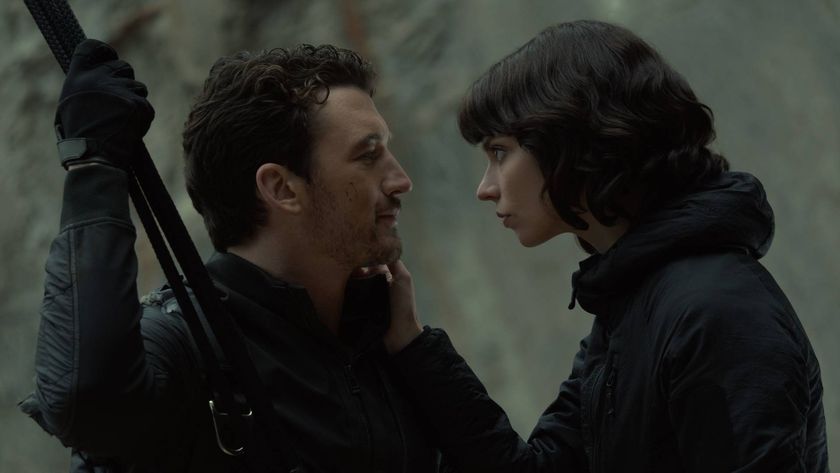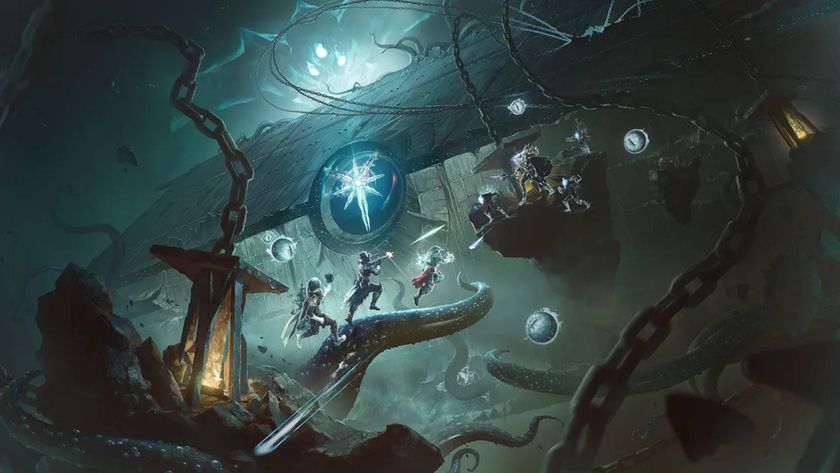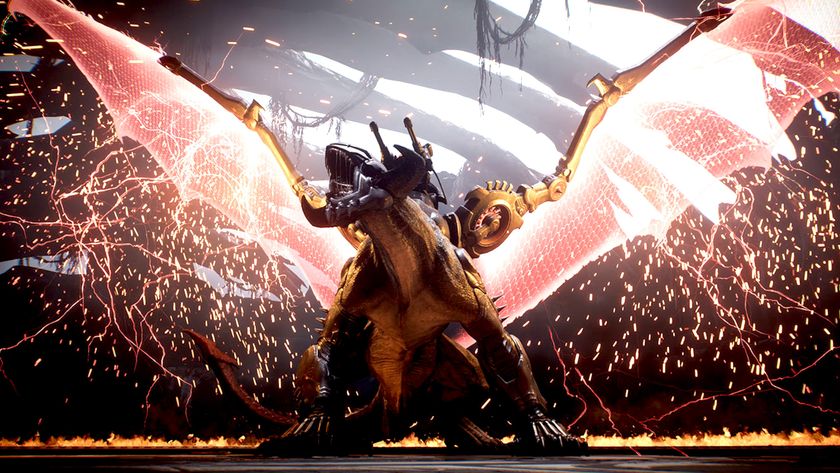Why you can trust 12DOVE
Yes, it's Jaws with lions. All the familiar elements are here: the too-nice-to-live sidekicks, the cynical hunter, the boss-man who cares less about lives than money, the unwilling amateur forced to give up his chosen craft to become a hunter... Like Jaws, the cast is wall-to-wall blokes (there's only one lady in the film - Emily Mortimer as Patterson's wife) and, like Jaws, the killers aren't acting at all like the rest of their species. The rolling plains of Africa, represented by shots of waving grass, even do a passable sea impersonation, the silent lions cruising through the shadows like that Great White of yore.
Not that this is a bad thing, and not that it makes the film a remake either. The Ghost And The Darkness' trump card is that it's all real - at least, in a "only a few bits have been changed to spice it up" way. Jollied along or not, it's an extraordinary story. Adult male lions loathe each other, yet the two on which the screenplay's based worked together. They avoided all traps, attacked the other end of the camp to the waiting gunmen, killed in daylight, and seemed to do it all for sheer feline fun, rasping the skin off their victims with their rough kitty tongues and eating the feet - just because they could. For months they slowed and eventually stopped the railroad construction; in the past, entire armies had tried and failed to do this.
The Ghost And The Darkness met with mediocre reviews in the States, which is scarcely believable - this reviewer is struggling hard to find anything bad to say about it. From its opening juxtaposition between drizzly London and a lavish Lion King "Look at Africa, it's great" train ride (past every impressive creature in God's repertoire) to its 3,000-strong railroad gang to its inevitable ghost-town showdown, the film blushes gorgeous visuals. Everyone puts in sterling performances too, with Kilmer's Irish accent barely noticeable as bad and Douglas' grizzled American Civil War veteran a joy to watch. But it's John Kani as Samuel, the African foreman and narrator of the story, who truly shines. (In fact, all the labourer characters are fully realised. They're portrayed as men in their own right rather than natives working for the white man - which probably isn't how it happened in the 1890s, but it makes the sensitive 90s viewer feel a bit better.)
Stan Winston, the man behind Jurassic Park's flesh-eaters, gets a credit, but you don't think of it as an effects-filled film. As far as you're concerned, real 500-pound lions are chewing real people and harrassing principal actors - there are no matte lines or dodgy remote-controlled stuffed heads to suggest otherwise.
As the bodycount climbs to triple figures, every bullet manages to miss them, every fence fails to keep them out, and, during the half-dozen or so masterfully different stalk scenes that make up the latter half of the film, every potential shot is blocked by a tree or thwarted by the lion sinking into the swaying grass. In a modern film, these beasts would have been taken from a 'copter, but in the low-tech 1890s Ghost and Darkness get away with it, helped by a night that shrinks the Westerner's camp down to a tiny island surrounded by a dark and menacing sea. Yes, we're back to Jaws analogies.
Like a more-serious Michael Palin Ripping Yarn, The Ghost And The Darkness is Merchant Ivory with big guns. Top performances from all concerned, including the lions, while director Stephen Hopkins proves that Judgement Night was a terrible one-off mistake.
The Total Film team are made up of the finest minds in all of film journalism. They are: Editor Jane Crowther, Deputy Editor Matt Maytum, Reviews Ed Matthew Leyland, News Editor Jordan Farley, and Online Editor Emily Murray. Expect exclusive news, reviews, features, and more from the team behind the smarter movie magazine.

Furiosa and Avatar star's new action sci-fi movie breaks Apple TV Plus records, becoming its biggest movie premiere ever

"A fun example of a bug becoming a feature": Destiny 2 accidentally made Exotic Glaives free to all classes, and Bungie says "we're going to let this ride"

As if hell and demons weren't enough, Doom: The Dark Ages went medieval so id Software "could get more dark and sinister with the tool kit"
Most Popular



